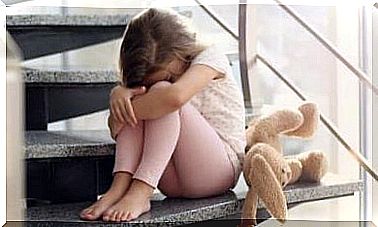5 Tips For Coping With Empty Nest Syndrome

The empty nest syndrome refers to the feelings of loss that parents may experience when their children leave the family home.
Roles change and this can create a great void when a large part of a person’s life has been defined by the roles of mother or father. In this article, we’ll show you five tips for coping with empty nest syndrome.
the empty nest syndrome
The empty nest syndrome is a period or phase of life in which parents experience a feeling of loss that causes episodes of sadness when their children leave the family home, which can even lead to possible depression.
Studies have not yet defined empty nest syndrome as a diagnosed clinical disorder. However, most research agrees that it is women who suffer the most and who have the most difficulty coping with the empty nest syndrome.
Psychotherapist and social worker Amy Morin explains that parents who go through empty nest syndrome experience a deep emptiness in their lives and often feel a little lost. The empty nest syndrome can even affect the lives of children, interfering with their independence and self-determination.

Symptoms and origin
According to the American Psychiatric Association (APA), one of the most frequent causes for the emergence of empty nest syndrome is a conflicting relationship between parents and children.
Thus, if the parent and child have maintained a relationship of detachment and even hostility, once the child has left home, both parent and child may suffer more.
Regarding the symptoms experienced by parents with empty nest syndrome, the APA is clear:
- Sadness.
- Loss.
- Depression.
- Anguish
- Loneliness.
- Feeling of emptiness.
How to face the empty nest syndrome?
1. Keep in touch
Thanks to the great revolution in social networks, many families are able to face the empty nest syndrome in an effective way. Once the kids are out of the house, it’s possible to stay in touch even from a distance, even daily, thanks to instant messaging apps and video calling.
2. Establish a routine
Each family and each member has its own rhythm. Therefore, before the child leaves home, it is important, for example, to establish the frequency and time of calls, always respecting the rhythms of each one and, at the same time, establishing a periodic commitment to keep in touch.
3. Look for new challenges
Without a doubt, being a parent is one of the biggest challenges one can face, if not the biggest. To avoid feeling empty after fulfilling the great challenge of raising and educating a child, it is essential to set new goals. For example, investing in the career you’ve always dreamed of or learning to play an instrument.
4. Take up your time
Without a doubt, children occupy a large part of their parents’ time in their daily lives, determining their lifestyle and daily routine. Thus, once the children have left home, the parents can experience great episodes of loneliness.
Get to know yourself deeply, find new interests, and fill your schedule with other activities, such as going to the gym or getting back in touch with your friends.

5. Get back to enjoying married life
As Morin defines it, when children leave home, parents have a new opportunity to be reunited with each other.
Probably all the leisure time they had before was taken up by their children. So, once they are out of the house, the parents should look for new common interests and start enjoying the couple’s free time.
For example, to enjoy married life again, it is possible to make plans to go out at night or take carefree trips, thinking simply and only about each other.
Redefining the role of parents: a tip for coping with the empty nest syndrome
Once the offspring leave and ‘fly’ out of the nest, the role of the parent certainly remains irreplaceable. Parental duties will no longer focus so much on care and protection, but on being there when needed: children must be sure that their parents are still by their side.









